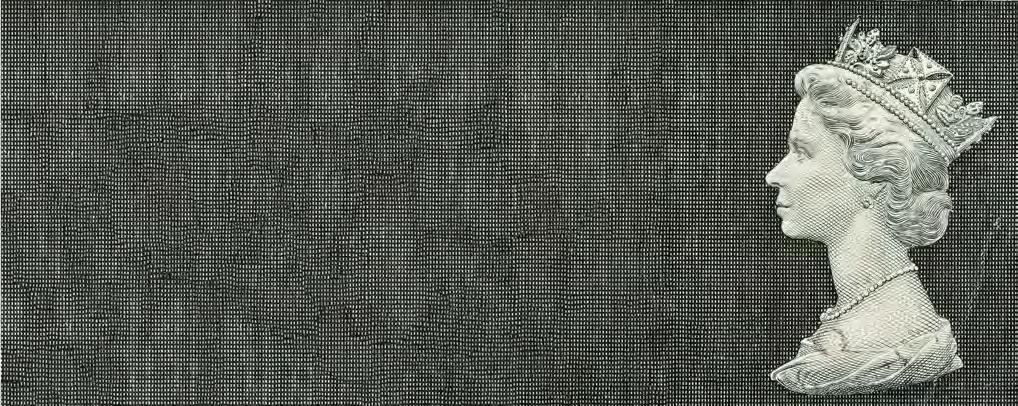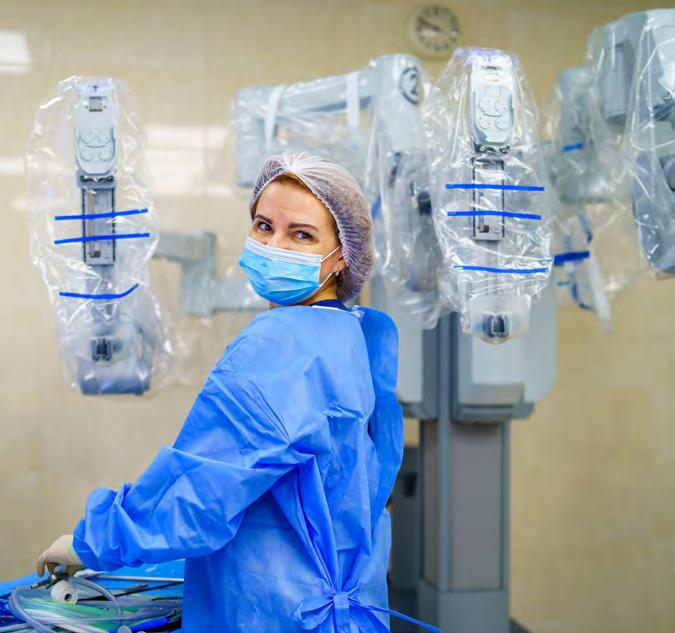
5 minute read
President’s perspective
We’ve had a lot going on in the last couple of months. In September we were saddened by the passing of Her Majesty the Queen. Queen Elizabeth II was widely admired for her grace, dignity, dedication and the inspiring leadership she provided to the Commonwealth nations and people. Her life and legacy will be fondly remembered by many around the world. Our thoughts are with the royal family and the people of the United Kingdom. As many of you will be aware, King Charles III in his previous capacity as Prince of Wales was the patron of the College. As he is now the king, we will seek clarification on the protocol in such circumstances, specifically whether the patronage will remain with him or transfer to his son William, now the Prince of Wales. In early August, we welcomed the Australian Minister of Health and Aged Care, the Hon. Mark Butler and his state counterparts announcing a crackdown on cosmetic surgery ‘cowboys’ preventing medical practitioners who are not qualified surgeons describing themselves as cosmetic ‘surgeons’. We were pleased to hear of such significant reforms, and what amounts to a restriction placed on the title ‘surgeon’. We have campaigned for this for more than a decade.
Our position as a College has always been to put patients first. Australians rightly expect surgical procedures to be performed to the highest possible standards. They expect those carrying out procedures to meet nationally established educational standards, undertake regular training and be registered in an appropriate specialty. Closing this loophole that allowed unscrupulous doctors to take advantage of patients is the right thing to do. We were also pleased that among other changes, the ministers also limited surgery to properly accredited facilities. It is critical to patient safety that surgical procedures are undertaken by properly qualified surgeons trained by RACS as an Australian Medical Council (AMC) accredited college, and surgery is conducted in facilities that are licensed and properly regulated. I met with Minister Butler and was accompanied by our CEO, John Biviano, and the President of the Australian Society of Plastic Surgeons, Associate Professor Nicola Dean and their CEO Kim Hanna. We discussed a range of issues pertaining to cosmetic surgery: the issue of titling, the curriculum and training that specialist surgeons undergo, and the importance of ensuring that any endorsement model reflects the high standards required to protect patient safety. We are committed to working with the health ministers, Ahpra, the Medical Board of Australia, and surgical specialty societies to develop and implement solutions that will ensure we are keeping the safety of patients at the heart of everything we do. In Aotearoa New Zealand, we were pleased to see the Te Whatu Ora Health NZ leaders directing all its health districts
Advertisement

to book surgical slots for the 7500 people who have been waiting longer than a year for surgery. However, I echo what our RACS Aotearoa New Zealand National Committee Chair, Associate Professor Andrew MacCormick, said when he noted that the focus shouldn’t be diverted from the root cause of long waitlists and urged the government to accelerate plans to relieve worker shortages across the healthcare sector. We know that the effects of COVID-19 will continue to be felt for many years to come, so we need a long-term plan to address workforce planning and future proofing health infrastructure. In August, I attended our Aotearoa New Zealand annual scientific meeting (ASM) in Queenstown, where I was able to korero (conversation) with colleagues and share ideas as well as learn. We had a strong attendance—an indication of the value of such meetings. We also had a great tri-state meeting where surgeons from South Australia, Western Australia and the Northern Territory gathered to discuss artificial intelligence in surgery. Artificial intelligence was also a strong theme at the ACT ASM, while the meeting in Tasmania focused on the humanitarian aspects of surgery. While it is not always possible for me to attend all these gatherings, Vice President Professor Chris Pyke and I try our best to participate as they are a great way to meet you in-person. Well done to all the teams of staff and surgeons who made the events a success. The New Zealand Association of General Surgeons conference in Wellington had two excellent presentations with speakers from Australia and USA speaking as holograms. I was extremely impressed. I hope we will see more hologram presenters in the future. In September we launched a Foundations of Robotic Surgery course, a world-first online program designed by surgeons for surgeons. The course, which is endorsed by the College of Surgeons, was developed by the International Medical Robotics Academy (IMRA), a leading provider of medical robotic surgical skills training in the health sector.
This unique online course, developed by pioneering expert robotic surgeons across multiple surgical specialties, is part of a linear robotic surgical training curriculum, using online education, virtual reality, 3D video, simulators, and advanced synthetic organ models. Participants will be equipped with the theoretical knowledge and practical understanding of how to set up a robot and console, the fundamentals of operating the robot, how to achieve robotic surgical competence and much more. This exciting new course is part of the College’s commitment to ensuring Fellows, Trainees, Specialist International Medical Graduates and prevocational doctors have access to the required training, assessment, feedback and support necessary to perform roboticassisted surgical procedures competently and safely. On a final note, we celebrated Te Wiki O Te Reo Māori, Māori language week in September. It was the 50th anniversary of the Māori language petition. Te Reo Māori is becoming part of our everyday language in Aotearoa New Zealand. Ngā mihi.
Dr Sally Langley President










